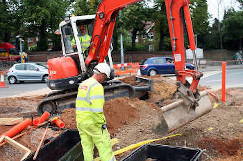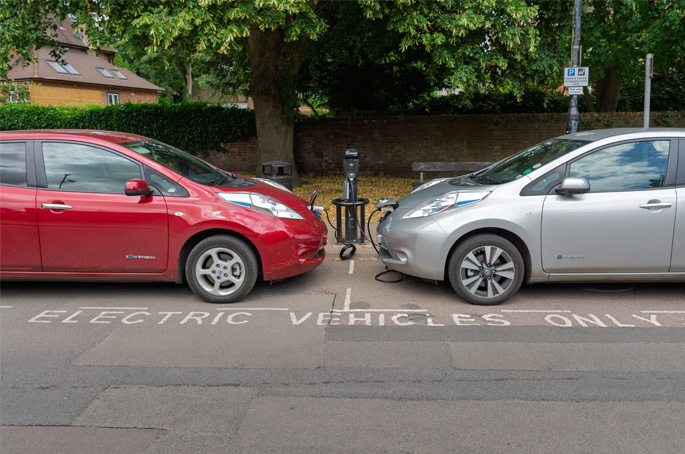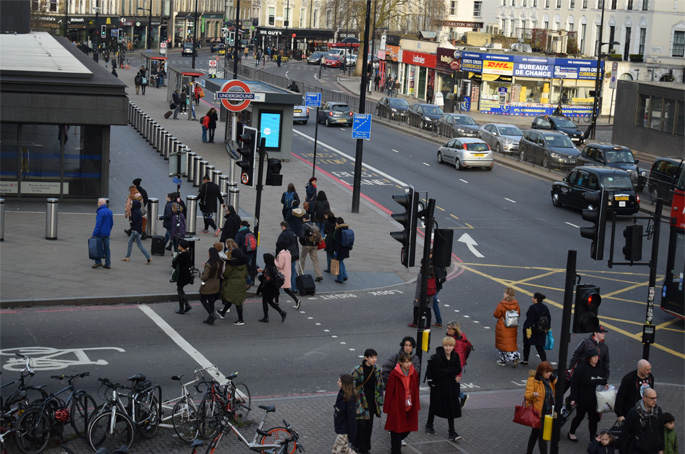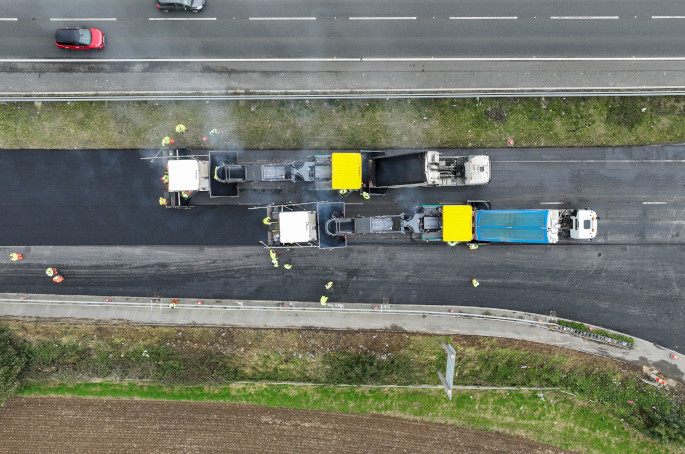The Government has published a new version of the statutory code of practice for street works, and quietly backtracked on initial plans to increase the guarantee on road openings from two to five years.
The Specification for the Reinstatement of Openings in Highways (SROH) is a statutory code of practice last updated in 2010 - since then the code had become dated and was leading to disputes.

As part of the update, the Department for Transport under Chris Grayling saw the opportunity to help authorities deal with the maintenance backlog by placing more responsibility on utilities companies when they dig up and reinstate the road.
The idea was the provide a five-year guarantee for reinstatement works, a major cause of road failure, forcing companies to come back if the road showed defects.
The consultation on the plans revealed that the sector was split down the middle on the issue between utilities and local authorities - with utilities getting their way.
Exactly 50% of respondents felt the guarantee period should be left as it is, with 47% calling for it to be increased.
The Department for Transport said: 'There was roughly an even split between those who wanted to leave guarantee periods as they are (mainly utilities) and those who preferred to see them increased to 5 years (mainly authorities).
'The response from the utilities showed that there are some important issues that need to be investigated before changing the guaranteed periods can be considered because of the potential for unintended consequences. It has therefore been decided that the guaranteed periods should remain as they are until further work on the financial impact of implementing such a change can be carried out.'
The fourth edition of the SROH officially replaces the 2010 third edition as statutory guidance on 10 May 2021.
Until that time companies may either continue to use the third edition specifications or implement fourth edition specifications, before the official change date, provided agreement is given from the relevant local highway authority.
The document outlines the standards for reinstating streets after completing street works. Anyone who carries out street works must reinstate the street once the work is finished, in line with these standards.
One of the biggest changes that has been carried out is to allow alternative materials to be used to aid compliance with air voids (compaction) requirements.
'Utilities often claim that it is not possible to guarantee compliance 100% of the time using currently permitted materials and this appears to be borne out by the failure rate of street works reinstatement,' DfT noted.
'This is owing to the difficulty in compacting these materials by hand lay methods. We propose to allow the use of alternative materials that are inherently easier to compact. Although they are slightly more expensive, the additional cost is expected to be insignificant compared with that of having to return to site to re-do the reinstatement.
'These alternative materials are based on case study evidence from utility companies that started using proprietary asphalt materials developed in conjunction with the materials supply chain,' the DfT said.
Other key changes:
- a specification for micro trenching is included but it is stipulated that approval for use of the technique must first be obtained from the highway authority.
- infills to be subject to a one-year guarantee period only where needed as a result of an existing uneven surface. PMMA included as an alternative option, subject to authority agreement.
- rationalising the process for introducing innovation - 'the guidance is more open to innovation to improve the introduction of new materials and methods in street works'
- a new specification for micro trenching, crucial for the economic roll-out of broadband but only previously allowed by agreement with each local authority
- permitting the use of large diameter coring, which can reduce a week's site occupation to around a day but previously was only allowed by agreement with each local authority
































